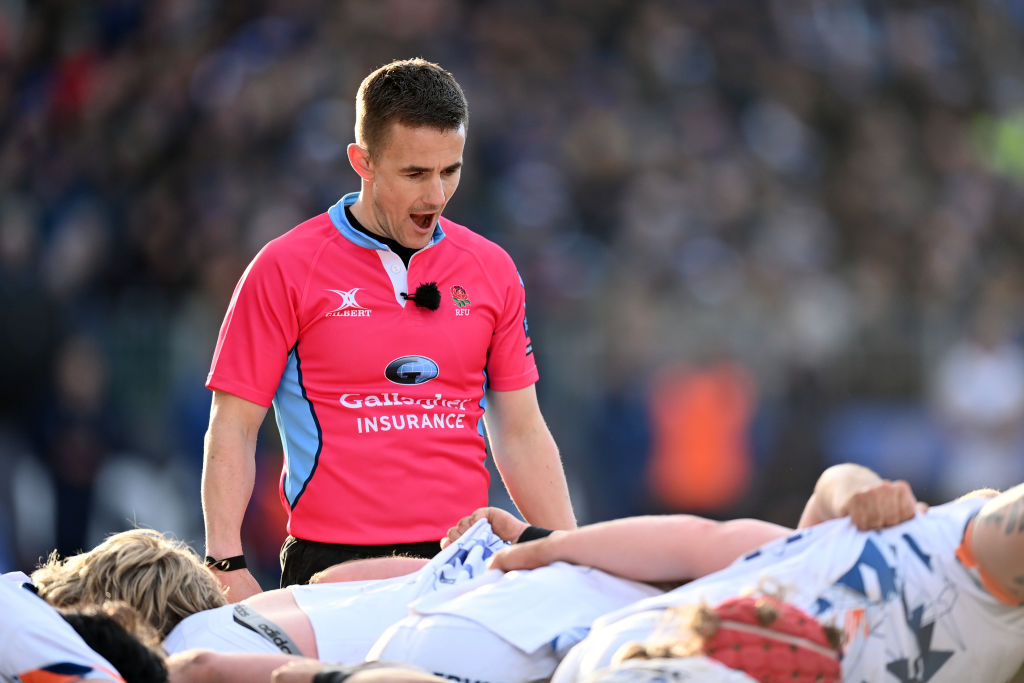Rugby: The new laws, rules and guidelines referees will now use

Rugby is a game of constant rule changes and 2023 is no different with a number of new guidelines coming into the sport to speed up the game.
As of 1 January this year, referees have been handed a bunch of new directives in order to make rugby more understandable and watchable.
So what’s coming into the sport in full from this weekend?
Speeding up rugby
For too long rugby has seen teams look to deliberately slow down the game and waste time on the clock – it’s been something that’s irritated fans for a number of years.
Conversion and penalty attempts at goal will now be strictly timed – 90 seconds for a conversion and 60 for a penalty – by officials.
From the Six Nations in February, there is expected to be a countdown clock on screens so fans, too, can see how long is left for players to take their kicks.
Time wasting will now be enforced further with a free kick – we saw this in last year’s Rugby Championship, to much controversy – while delays at the scrum and lineout will also be punished with a kick from hand.
Water carrier rule changes
Water breaks have been used and perhaps overused in the game for a number of years now since the beginning of the Covid-19 pandemic.
The new directives will see water carriers allowed to enter the field only after a try has been scored, or on one further occasion during the match should a try not be scored in the opening 20 minutes of a game.
Rugby is aiming to use the natural breaks in play to hydrate players rather than stopping a match clock for some water.
TMO protocol
There has been a directive from World Rugby to use the television match official (TMO) only for clear and obvious foul play errors and not for lower level offences that matter less.
Furthermore, referees are encouraged to work with the other officials to make speedy decisions to reduce the time spent pondering over 50/50 calls.
Rugby’s negative play
The fourth directive is for referees to clamp down on minor offences in the law book that have been neglected for far too long.
Trapping players in the ruck, milking penalties, not playing the ball; these are some of the offences that will be refereed more strictly.
Often penalty offences, many of these go unnoticed and unrefereed due to the speed of the game and the small reaction time referees have to make their decisions.
So has it worked so far?
Sunday’s match between Northampton Saints and Harlequins in the Premiership saw leading referee Luke Pearce take centre stage for the first televised match under the new directives.
He was a constant talker, almost guiding the teams – and therefore the fans – through the rucks and phases. Pearce made quick calls in aid of a faster game and spoke well with players and officials to make big decisions in a reasonable timeframe.
This, too, was seen in a Welsh derby between the Dragons and the Scarlets when referee Ben Whitehouse was a vocal official in the middle of the pitch and spoke clearly and decisively when making decisions – including a key call on a red card offence.
It looks as though the new rules are working, and that’s welcome for those who watch the sport. How long officials remain this vocal, however, remains to be seen.